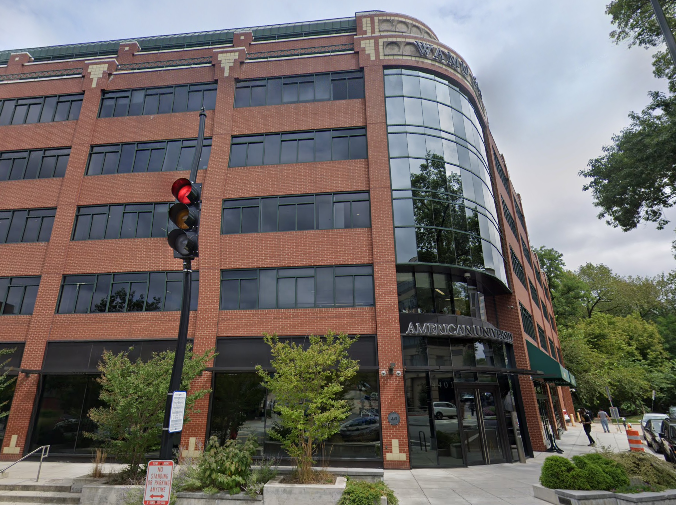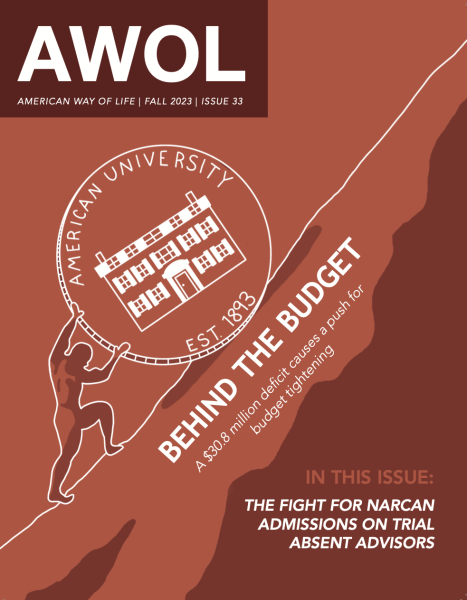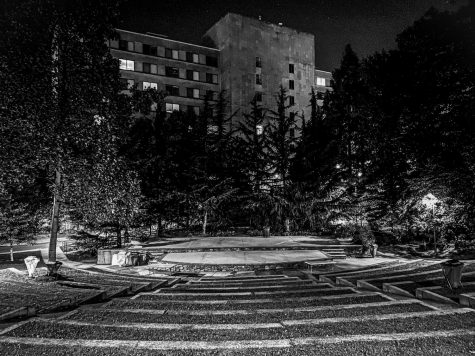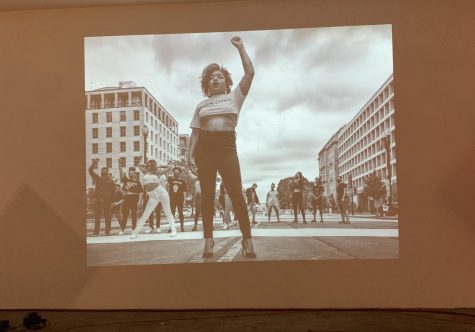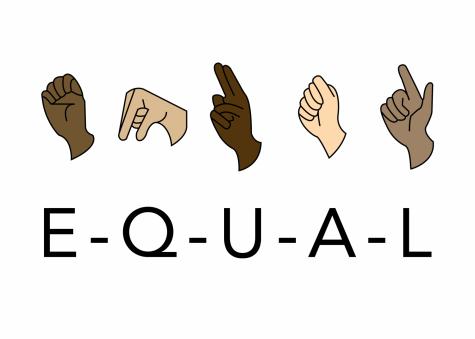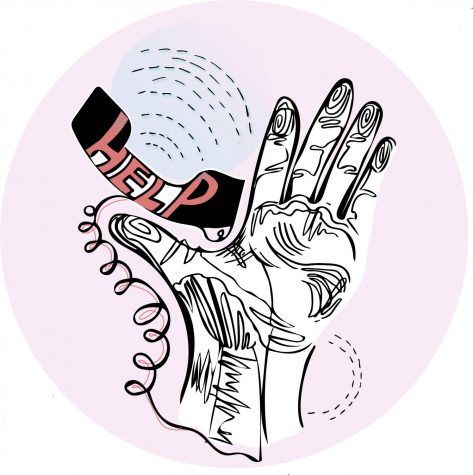AU uses past anti-union tactics against WAMU organizers, staff relationship with university remains strained
The university moved to prolong negotiations, redefine potential union membership, and promote internal changes that organizers said failed to take staff members’ voices into account.
Around a third of all potential members of the WAMU content staff’s union could be excluded from voting for, and becoming a part of, the union they helped organize.
Just days before this move was announced by the university, union organizers sent a letter to the AU Board of Trustees calling on them to conduct a fair election. Organizers cited concerns about other public radio stations that tried to unionize in recent years and faced harsh anti-union campaigns from management and educational institutions that licensed them.
“We also call on American University to officially commit to a neutrality agreement, ensuring management takes a neutral stance during the election and does not waste listener dollars and member contributions fighting our union effort,” the letter reads. “We value our listener contributions for supporting the work we do. Together we can ensure that these resources are not wasted in futile attempts to discourage us from fighting for better working conditions.”
Despite the request for neutrality and 99% of non-supervisory content staff signing on to the unionization, AU’s first move was to call into question the membership of 26 potential union members according to Ally Schweitzer, a business and development reporter at WAMU who helped organize the union. Part-time workers, grant funded employees and those whose positions do not meet the university’s definition of content creation are at risk of being removed from the final vote.
AU’s anti-union history.
This is not the first time AU’s posture toward unions and unionization has been at odds with its actions.
Despite being considered a liberal university, hosting pro-union speakers like Julián Castro and Angela Davis in just the last weeks, and employing several professors who are outspoken critics of anti-union activities, AU pushed back against unionization movements led by adjunct professors and graduate students in the past.
The university and graduate students supporting a union were locked in negotiation efforts that lasted two years,staff efforts to unionize faced difficulties in the past, and RA’s at AU have discussed unionizing as a way to improve issues in the workplace as recently as last year.
In 2012, AU released a statement to the Washington Post arguing that adjunct professors, who were looking to unionize over issues with compensation, were not comparable to full-time professors.
Camille Lepre, an AU spokesperson at the time, gave a comment on adjunct unionization to the Washington Post.
“It’s not a fair comparison to hold an adjunct that teaches a course up to a tenured or tenure track faculty member who is generally teaching four courses a year, conducting research on an area of new knowledge, advising students, supervising theses, dissertations, and internship experiences, and providing service on university committees and to the community on behalf of AU,” she wrote.
At the time, an adjunct professor teaching three courses at once could make as little as $18,000 a year. A full-time professor, usually teaching four classes and conducting research, made around $152,000 a year.
By the university’s own logic, that would mean less than 20% of a full-time professor’s pay came from actually teaching.
AU adjuncts accused the university of union-busting, and AU student activists called the university’s response to the union and the wages adjuncts received “disgusting.”
An article published in AWOL’s December 2019 magazine shows that nine years after unionizing, adjuncts still experience low compensation, despite making up over 40% of AU’s teaching staff.
AU has not released statements directly stating they do not support unions, and has repeatedly stated in the past that they will respect the final outcome of a vote to unionize.
But, according to WAMU’s current union organizers as well as statements from union members in the past, actions such as delaying votes, prolonging negotiations, redefining which staff members are able unionize, and questioning the importance of certain staff as they try to unionize, can be harmful to the process of creating a union.
Along with WAMU content creators, AU staff members are now seeking to unionize during the pandemic as well.
In an Op-Ed published in the Eagle, AU staff organizers said unionizing is a way to ensure “AU provides a functional, safe and equitable working environment for all employees.”
“We are all invested in student safety and the educational experience,” the Op-Ed reads. “But we cannot secure those fundamental aspects of AU’s mission while facing the uncertainties of furloughs and layoffs, increased job responsibilities without increased pay, and lost benefits.”
On its website, AU has a page dedicated to answering questions about the efficacy of unions. The page repeatedly questions whether a union will actually be useful for staff members, raises doubts that a union will properly represent staff members, and directs staff members to contact the school, rather than one another, to ask questions about unionizing.
Answering the question: “Can a union improve a dynamic in which some staff feel less valued than faculty,” the page states:
“While a union might provide an alternative process to bring complaints through a formal grievance process, that would only apply if the behavior in question violated the collective bargaining agreement. Processes already exist for staff to bring complaints against supervisors, fellow staff, and faculty, through the complaint policy and procedures outlined in the Staff Personnel Policies Manual and the Faculty Manual. A staff union cannot demand or make changes to the Faculty Manual, nor can it guarantee better behavior from the faculty or managers.”
But according to WAMU organizers, unionization is one of the only paths forward when grievance systems, complaints against staff members and issues with management have gone ignored by the university in the past.
A year of upheaval
WAMU and the university have already had increased strain on their relationship in recent months aside from decisions on benefits and pay during the pandemic.
A DCist story published at the end of July detailed how AU’s HR department stalled and rejected repeated attempts to remove Martin Di Caro, a reporter who allegedly harassed and engaged in inappropriate contact with dozens of women in the media industry.
Ruth Tam, Cohost of the Dish City podcast and a digital producer at WAMU who is involved in union organizing, said AU’s responses to the station’s internal issues, and now to the union, have been criticized by organizers.
“In terms of taking the steps to rebuild trust between the university and the station, it is a prudent thing to recognize the union as a show of good faith,” said Tam.
The decision not to recognize the union, according to Tam, takes away the opportunity for WAMU staff to have a role in responding to these situations.
“Seeing all the cracks in the system, both on the station side and the university side, made people realize that the people that they thought would have our backs are punting the football between themselves,” said Tam.
Additionally, Zuri Berry, a senior managing editor at WAMU is currently on administrative leave and is suing the university, a news outlet and several women after a story in Current, a trade publication covering public media, published stories alleging Berry acted inappropriately toward women of color on staff.
Tam said the university has communicated with WAMU staff that they are willing to work with them to provide workshops and support in handling issues of harassment and racism within the organization.
“Those [workshops] were required to, like, participate in their version of change,” said Tam.” “There’s got to be some show support for an employee led change as well.”
Christian Zapata, a digital producer for WAMU who could be excluded from the union due to his work status, said after all the internal struggles station staff have dealt with “it sucks to see that … the university is still making it harder for us to just try to get equal pay benefits and equality across our workforce.”
Zapata said the culture at the station has influenced how staff members are feeling right now in a way that goes beyond AU’s management, but that it’s not “an excuse for a lot of the way that AU was failing the station” in the past.
“Now they’re kind of coming in to clean up the mess,” with workshops and training, said Zapata. “That’s fine. But it’s not in a way that I feel is really addressing the concerns of the people who work at the station.”
Zapata said with the response from the university to the union and the “well-intentioned” but unhelpful workshops on sexual harassment and racism “puts the burden on workers as if we’re the problem,” and left him questioning the AU’s long-term intentions.
“Just because there have been bad actors in the past does not mean that the worker pool is inherently corrupt,” said Zapata. “A lot of what we’ve seen is the internal systems for reporting things and moving them up the chain and having people held accountable are what’s failing. … When you institute training like this to try to fix the problem, [like] it’s our fault, it sends a really bad message.”
Creating a better culture at the station on the terms of the people who work there, Tam said, is essential, and can’t be done without taking the staff’s voices and concerns into account.
“Not knowing who you can trust when you go to your manager, when you go to HR … I think that concern is what’s driving the need to repair that relationship,” said Tam. “A lot of people see the solution to repair it is partly by recognizing the union.”
This story is the second and final part of a two part series on AU and unions.


